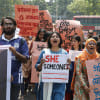BNP’s unfolding strategic stance: Straddling the aftermath of a revolutionary ‘event’ and realpolitik

The July 2024 uprising in Bangladesh marked a pivotal moment as students and citizens rallied for transformative change, challenging established political hierarchies. Unlike previous movements, this protest operated independently of any political party leadership, underscoring a grassroots demand for reform that had eluded mainstream opposition efforts for over a decade. For the first time, a mass uprising forced the removal of a seemingly entrenched regime through sheer public resolve, demonstrating the often-overlooked power of collective action—an "event" as described by eminent French philosopher Alain Badiou: a disruptive break from the status quo of conventional political order.
On August 8, the formation of an interim government emerged as a critical turning point in Bangladesh's political landscape, briefly uniting opposition forces, including the BNP, around a shared agenda for paradigmatic change. Initially supportive of the student movement, some argue that the BNP later tempered its endorsement, seemingly distancing itself strategically from some of the demands for structural reform of extractive institutions widely seen as enabling the rise of illiberal, authoritarian governance, epitomised by the recently ousted regime. Notably, the BNP is now subtly yet unmistakably shifting away from calls for the immediate resignation of the sitting president—a figure closely tied to the discredited past—and towards advocating for a more cautious, electoral roadmap. This strategic repositioning has allowed the BNP to present itself as a stabilising force focused on continuity and gradual reform through electoral processes, a choice that critics argue reflects a conservative impulse to preserve familiar structures.
According to cultural theorist Frederic Jameson, understanding such political decisions requires analysis through multiple lenses or "horizons." On the "political horizon," Jameson's first level of analysis, the BNP's reluctance to support student-led calls for immediate presidential removal can be viewed as a tactical move to balance reform aspirations with stability. By prioritising an electoral roadmap over sudden upheaval, the BNP is perhaps portraying itself as a seasoned opposition force. This approach positions the party as a measured alternative amid calls for radical change—a strategic choice to avoid being swept up in what it might see as "instant gratification" in favour of long-term goals. However, critics argue that this approach risks the party appearing overly conservative and misaligned with the youth-driven energy fuelling the July uprising.
The "social horizon," meanwhile, explores deeper class and institutional interests that shape political choices, often unconsciously. Here, the BNP's distance from grassroots reform demands can be seen as aligning with the entrenched two-party system, which has long structured politics in Bangladesh. By prioritising incremental reforms and institutional stability over radical transformation, BNP implicitly supports structures that have historically benefited both itself and the Awami League. This reluctance to disrupt institutional power structures could be understood through Jameson's concept of the "political unconscious," where underlying class interests influence behaviour that may appear pragmatic but, in effect, serves to protect established hierarchies. The BNP's stance could be reflective of this tendency, preserving a status quo that risks sidelining the radical reforms that some segments of the public are increasingly demanding.
In the "historical horizon," Jameson's final layer of interpretation, BNP's response to the uprising can be seen as part of Bangladesh's cyclical political struggles. Rather than embracing a transformative shift, BNP's positioning could suggest a reluctance to break from long-standing political rivalries, framing itself as the ideological heir to the student movement's anti-Awami League sentiment while resisting a deep engagement with systemic overhaul. But this positioning could risk reducing the uprising's transformative vision to another episode in the Awami League-BNP rivalry. In Jameson's view, such cyclical politics underscore a missed opportunity for genuine change, as BNP's actions could hint at continuity within Bangladesh's familiar political pattern to some, rather than a break from it.
French philosopher Alain Badiou's concept of the "moment" underscores the unique potential of the July 2024 uprising to introduce new political realities. For Badiou, such a moment represents a radical rupture from established norms, challenging entrenched power structures and creating the possibility of unforeseen political reforms. The uprising's mass mobilisation of public sentiment without major party backing exemplifies that this kind of "event" informed disruptive rupture, a grassroots force demanding structural change that bypasses established political channels.
However, Badiou also warns that these transformative moments can be co-opted or neutralised if not sustained by active revolutionary commitment, or what he calls "fidelity" to the event. The BNP's stance, which shifted from initially aligning with the students to later portraying the president as a stabilising figure, could risk dissipating the transformative potential of this "moment." By reverting to conventional political processes, BNP's approach could undermine the movement's radical energy, restoring the status quo ante, rather than actualising the profound systemic reforms demanded by some people.
Ultimately, the BNP's decision to prioritise stability over radical change illustrates a complex dilemma: straddling the aftermath of a revolutionary "event" and realpolitik. While the party's cautious stance may preserve order and avoid immediate risks, it also places the BNP at odds with some segments of society that have become increasingly disillusioned by traditional politics. This hesitance could alienate reform-minded citizens, especially younger voters who may view BNP's position as self-serving or evasive. Rather than merely adopting the movement's ideological legacy, BNP's strategic ambivalence risks positioning it as another entity within the political duopoly that the uprising implicitly critiques.
BNP's strategic choices in the wake of the July uprising reveal a tension between preserving continuity and embracing transformative potential. While Jameson's "Three Horizons" show how the party's stance aligns with established power structures, Badiou's concept of the "moment" underscores the revolutionary potential that the BNP risks missing. By aligning itself too closely with stability, and gradualism, BNP could marginalise itself in the eyes of a public yearning for meaningful change. To truly capture the movement's spirit, the party may need to move beyond mere strategic positioning and fully engage with the grassroots demands that fuelled the July uprising—demands that traditional, incremental politics can no longer afford to overlook. By the same token, this challenge also calls for a delicate balancing act of realpolitik, as the party weighs transformative ambitions against the pressures of political continuity and stability in an unpredictable landscape.
Dr Faridul Alam writes from New York City, US.
Views expressed in this article are the author's own.
Follow The Daily Star Opinion on Facebook for the latest opinions, commentaries and analyses by experts and professionals. To contribute your article or letter to The Daily Star Opinion, see our guidelines for submission.

 For all latest news, follow The Daily Star's Google News channel.
For all latest news, follow The Daily Star's Google News channel. 










Comments